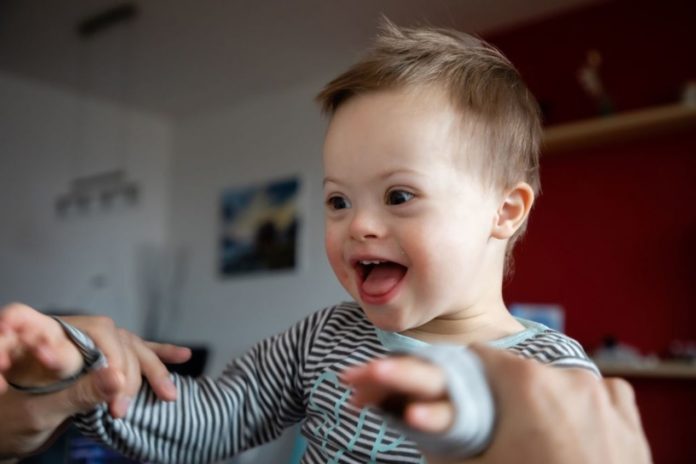Science has already revealed that green tea can improve your cholesterol levels, boost your brain function, and even provide some anti-cancer benefits. Now, it turns out that the beverage could also be a key part of recovering from Down Syndrome.
A new study published in the journal Scientific Reports found that giving green tea supplements to toddlers with the condition before their third birthday could limit how it affects their appearance – but only if in small doses.
Down Syndrome is caused by having an extra chromosome 21, which leads to an over expression of certain genes – meaning they produce too much protein.
People with down syndrome or having a child with down syndrome often suffer from a number of physical and intellectual disabilities, including a flattened face.
- Scientists in Fear of This New Predator From Red Sea Eating Native Species in Mediterranean
- Does This Mean We Stopped Being Animal and Started Being Human Due to ‘Copy Paste’ Errors?
- The One Lifestyle Choice That Could Reduce Your Heart Disease Risk By More Than 22%
- Aging: This Is What Happens Inside Your Body Right After Exercise
- Immune-Boosting Drink that Mimics Fasting to Reduce Fat – Scientists ‘Were Surprised’ By New Findings
Around one in every 1,000 babies born in the UK will have Down Syndrome, with a higher risk among those born to older women.
One of the affected genes, dubbed DYRK1A, had been found to alter brain and bone development in people with the genetic disorder.
A compound in green tea called EGCG is known to restrain this gene and could help limit facial variations.
But taking too much of it could do more damage than good, the researchers say.
Professor Martínez-Abadías from the University of Barcelona in Spain, said:
“Our findings suggest that effects of EGCG strongly depend on the dose.
“EGCG products are commercially available and they are used regularly as a general health-promoting compound.
“However, it’s important to follow the European Food Safety Authority recommendations regarding the maximal intake and to always consult a physician before taking the supplements.”
The researchers first tested different dosages of EGCG supplements on pregnant mice.
A low or high dose of green tea extract was added to their drinking water while the pups were developing in the womb.
Co-lead author professor Greetje Velde, of the University of Leuven in Belgium, said:
“The low dose treatment had a positive effect on mice that are a model of Down syndrome, with 60 percent of them showing a facial shape similar to the control group.
“The high dose treatment, however, generated very mixed results, and even disrupted normal facial development in some cases, causing additional dysmorphology.”
The researchers then carried out an observational study involving 287 children, 76 of whom had Down Syndrome.
Green tea supplements were given to 13 of these children who were between zero and 18-years-old.
All of the participants were photographed from various angles to create a three dimensional model of their faces.
Professor Martínez-Abadías said:
“We use 21 facial landmarks, and the distances between them, to compare the faces of the participants.”
Among the youngest section, aged zero to three, there was a 57 per cent difference in facial features between children who had not been given green tea and those without the condition.
This difference was more than halved (25 per cent) for babies and toddlers who did receive the treatment, the researchers found.
Professor Martínez-Abadías said:
“We didn’t identify a similar effect in the adolescent group.
“Even when treated with green tea extracts, children with Down syndrome still show a difference of more than 50 percent compared to the control group.”
This suggests green tea’s magical properties only work if supplements are taken early on in life, when the face and skull are still developing.
More research is needed and the findings should be handled with caution given they are based on an observational study, the researchers say.
- Scientists in Fear of This New Predator From Red Sea Eating Native Species in Mediterranean
- Does This Mean We Stopped Being Animal and Started Being Human Due to ‘Copy Paste’ Errors?
- The One Lifestyle Choice That Could Reduce Your Heart Disease Risk By More Than 22%
- Aging: This Is What Happens Inside Your Body Right After Exercise
- Immune-Boosting Drink that Mimics Fasting to Reduce Fat – Scientists ‘Were Surprised’ By New Findings
Figuring out the right dosage and looking at how EGCG affects other parts of the body is the next step.
Professor Martínez-Abadías said:
“Our research shows potential beneficial effects of facial development at low doses, but at very high doses they can produce unpredictable effects in mice.
“More research is needed in humans to determine the optimal dose at each age that maximises the potential benefits.”
